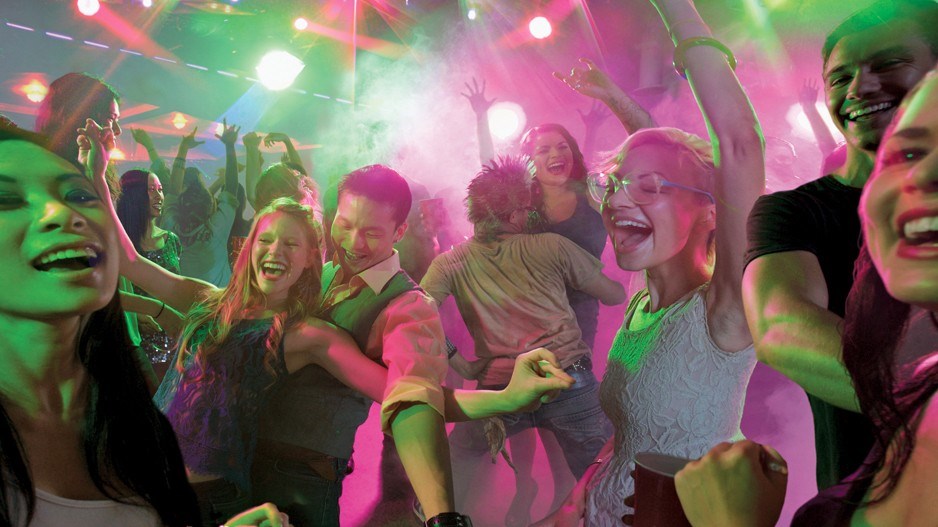On a Friday night, April 30, a remarkable thing happened in Liverpool, England – remarkable for the current times, that is.
Some 3,000 revellers partied like mad, indoors, at a government-sanctioned rave event. No masks, no social distancing. It was a U.K. test of its collective immunity. Attendees had to test negative for COVID-19 before being admitted.
Provided the U.K. sees no major spikes in COVID-19 cases, it plans to remove all social restrictions June 21. The U.K. is also expected to lift travel restrictions soon for destinations in Europe that will not require quarantine for returning travellers.
California – one of the worst pandemic hot spots in the U.S. just a few months ago – is also planning a general reopening of its economy on June 15, after a period of strict lockdowns. Movie theatres will reopen and concerts can be held, albeit with some capacity limits in place.
What is remarkable is that, in the fall and winter of 2020, a COVID-19 heat map of the world would have shown the U.S. and U.K. basically on fire. A new kind of heat map – vaccination rates – shows a sudden reversal.
Canada is lagging far behind the U.S. and many other industrialized countries when it comes to fully vaccinating its citizenry. As a result, Canadians will have to wait a lot longer than Americans or Britons before Phase 4 activities like nightclubbing, concerts, indoor sports and conferences can resume.
In the U.S., 31% of the population is fully vaccinated, whereas only 3% of Canadians were fully vaccinated as of last week, according to the Johns Hopkins COVID-19 dashboard. In the U.K., 23% of the population is fully vaccinated. In B.C., 29% of the population is vaccinated but less than 2% is fully vaccinated.
“Those are pretty small numbers,” said Stephen Hoption Cann, a public policy professor at the University of British Columbia. “If you look at Canada overall, there’s not a huge decline in new cases, so that’s not very encouraging to opening up.”
To cope with a limited supply of vaccines, Canadian health authorities have opted to get as many citizens vaccinated with a first dose, and delay second booster shots.
Canada is not the only laggard. Japan and South Korea have fully vaccinated less than 1% of their populations, and in Australia the number of those fully vaccinated is so low that it is not counted yet. But Australia, New Zealand and South Korea all managed to bend the COVID-19 curve early on and keep transmission rates low throughout the pandemic, while Canada was hit with significant second and third waves.
Despite the country’s low immunization rates, Australia’s economy is largely reopened, according to the global commercial real estate firm Cushman & Wakefield, whose Economy Reopening Tracker has been tracking economies around the world and gauging their degree of openness.
As of February 21, the tracker had Australia at 80% open, while Canada was at 55% and the U.S. at 65%. Australia and New Zealand have reopened their borders with each other.
B.C. was credited for having done a good job of containing the spread of the virus during its first wave, while managing a staged reopening of the economy earlier than many other jurisdictions. But getting to that final stage of reopening – concerts, conferences and nightclubs – still looks to be a long way off in B.C. and other Canadian provinces, notably Alberta and Ontario.
B.C. is still coming out of a third wave, and the slow pace of immunization suggests B.C. will remain stalled at Phase 3 of the BC Restart plan for months to come. Phase 4 includes resumption of concerts, conventions, sporting events, nightclubs and international tourism.
To achieve herd immunity, 70% of a population must either be immunized or have natural immunity. A recent Insights West poll, however, found just 56% of British Columbians are fully committed to getting vaccinated.
Countrywide, 15% of Canadians say they will not get vaccinated. And somewhere in between is a grey area that includes people who got their first shot but may not follow up with a second, and those who are still undecided and may get vaccinated.
Some governments are addressing this problem with immunity passes. In Israel, 56% of the population is fully vaccinated. But the pace of immunization has begun to slow in Israel, due to vaccine hesitancy. So it has implemented a pass system that allows people who have been vaccinated, or who have gained immunity by recovering from COVID-19, admission to gyms, hotels, restaurants, social and sporting events.
Mario Canseco, president of polling firm Research Co., said British Columbians generally support the idea of immunity passports and are getting angry and impatient with restart plans being pushed back.
“You create that emotional reaction from people when you say, ‘This is almost over,’ and then two weeks later you say, ‘Guess, what – it’s not over,’” he said. “We continue to see most Canadians believing that it’s a good idea to be able to have that sort of certification. There is going to be a component of the population that can enjoy travel and should be able to do so if they are vaccinated.”




